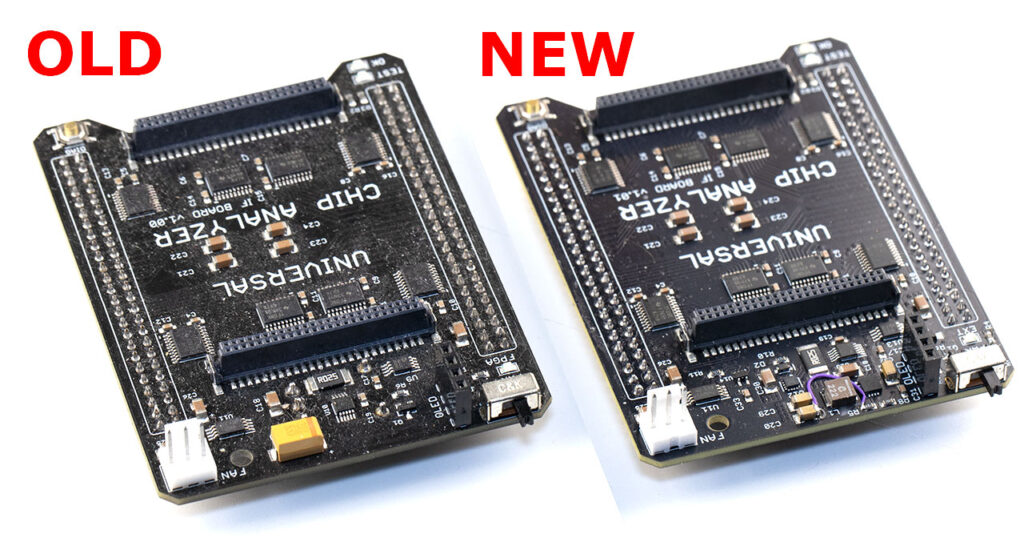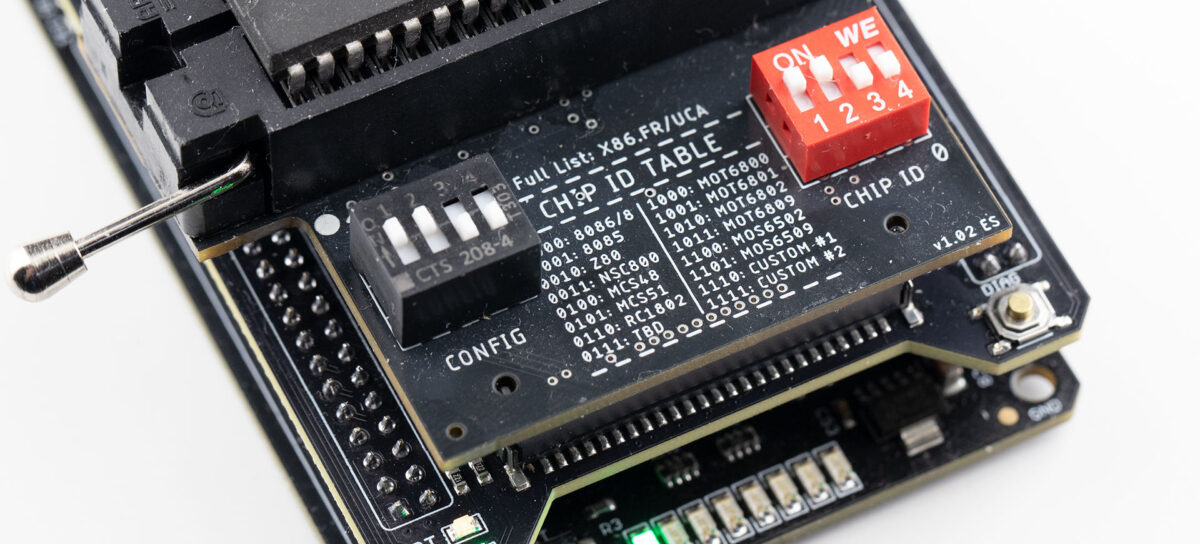Designing a stable, adjustable and fail-safe power supply for the Universal Chip Analyzer has been one of the most challenging aspects of this project and I was quite reluctant to touch that part of the schematics. For years, the DC-DC power supply stage on the UCA Interface Board relied on Texas Instruments’ PTH08080W module, mounted upside down. While this module is excellent and performs reliably, it has two significant drawbacks.
First, it’s expensive, costing around $8–$9 per unit. Additionally, as a non-standard through-hole component, it complicates assembly and increases costs when using a reflow machine.
 More importantly, the PTH08080W module needed to be replaced to implement a highly requested feature from beta testers. Previously, a 9V external power supply was mandatory in addition to the 5V provided by the USB-C to power the UCA Interface Board. That external power supply powered the DC-DC converter, which delivered an adjustable output voltage ranging from 2.8V to 5.5V at up to 2A. However, in some cases (such as testing 5V-only CPUs that consume less than 300mA), the voltage provided by USB-C alone could be strong enough. Beta testers requested an alternative power option to use only USB-C power when it’s possible, and this final revision delivers on that request.
More importantly, the PTH08080W module needed to be replaced to implement a highly requested feature from beta testers. Previously, a 9V external power supply was mandatory in addition to the 5V provided by the USB-C to power the UCA Interface Board. That external power supply powered the DC-DC converter, which delivered an adjustable output voltage ranging from 2.8V to 5.5V at up to 2A. However, in some cases (such as testing 5V-only CPUs that consume less than 300mA), the voltage provided by USB-C alone could be strong enough. Beta testers requested an alternative power option to use only USB-C power when it’s possible, and this final revision delivers on that request.
The PTH08080W module has been replaced with a discrete DC-DC converter, complemented by additional circuitry for digital control of the voltage output. An ideal diode controller has also been integrated to manage the USB-C 5V input, ensuring seamless switching and protection in the event of a failure.
The Universal Chip Analyzer now features two automatically selected power modes:
-
- USB-C Only (No External Power)
In this mode, the UCA can test 5V chips that draw less than 300mA. This includes, for example, all DIP40 ICs. Overcurrent and short-circuit protections are still in place, but the UCA will only allow this mode for compatible adapters. This setup is perfect for quick, portable testing in the field using a USB battery pack. - USB-C with 9V External Power
This fully featured mode supports all UCA functionalities, including the ability to test a wide range of components, from early DRAM to late 5×86 chips. Adjustable voltages (e.g., 3.3V, 3.45V) are supported, with high current capability up to 2A. This mode is ideal for advanced bench analysis and testing of more demanding components.
- USB-C Only (No External Power)
With this final challenge resolved, I’ll be updating the UCA website and opening preorders in two weeks.
Thank you all for your patience and support!



